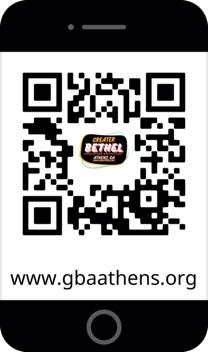JESUSTHEFOODIE
Finding Grace At God’s Table

Pastor Greater Bethel AME Athens

Jesus The Foodie: Finding Grace At God’s Table
Did you know that a foodie is defined as a person who loves and has a refined interest in food? Foodies eat not only out of hunger but also as a hobby.
Well, on this Thanksgiving Day, I think we are all foodies. As I record this message, I am thinking about all the wonderful food that awaits: the stuffing, the dressing, the mac and cheese, the greens, and yes, the turkey with all the trimmings.
Did you know that Jesus is a foodie? Jesus was a foodie because He used meals to engage people and teach important lessons at the table.
In Luke’s Gospel alone, Jesus shares 10 meals—some with His disciples, some with religious leaders and Pharisees, and some with the outcasts of His day. In Jesus’ time, sharing a meal with someone was an act of acceptance—and often, it was who Jesus ate with that got Him into trouble.
During Jesus’ time, the Promised Land given to the Jews had been taken over by the Romans. The Romans commissioned Jewish tax collectors to collect revenue, and many of these tax collectors took advantage of their own people by charging extra to line their own pockets.
Jewish tax collectors were considered outsiders, traitors, and just as much an enemy as the Roman occupiers. So for Jesus, who claimed to be the Son of God, to share a meal with a tax collector would be like Volodymyr Zelenskyy, the President of
Ukraine, having a Big Mac with Vladimir Putin, the President of Russia.
But do you know what Jesus, the foodie, did? He shared a meal with a tax collector named Levi. The Pharisees and the teachers of the law complained, saying, “Why do you eat and drink with tax collectors and sinners?” Jesus, the foodie, responded, “I have not come to call the righteous, but sinners to repentance.”
In eating that meal, Jesus was showing that God accepts everyone.
Along with the wonderful food enjoyed on American tables today, there will likely be another dish on the menu: tension. Tension from family disagreements, political differences, longfestering feuds, or petty grievances. Tension from the stress of travel, the work of cooking all that food, cleaning the house, and later washing the dishes. Tension has become an unfortunate staple of the American Thanksgiving meal.
But Jesus, the foodie, gives us a constructive way to deal with that tension.
The Bible speaks often about God’s acceptance of us and how we should accept others. When Jesus walked on earth, He was the perfect example of accepting others, no matter their sins or choices. He extended grace and forgiveness to all, and we are commanded to do the same.
Even though Scripture tells us to seek unity and show no partiality, it also warns us to avoid bad company.
1 Corinthians 5:11 says: “Do not associate with anyone who claims to be a brother or sister but is sexually immoral or greedy, an idolater or slanderer, a drunkard or swindler.”
Jesus, the foodie, shows us that accepting and loving others as God does doesn’t mean allowing them to negatively influence our lives. There is a balance between grace and wisdom.
When I was growing up, it was a custom for each person around the table to recite a Bible verse before the meal.
So, this Thanksgiving, before you enjoy your meal, let me leave you with a verse that I hope will bring you comfort as you deal with the tensions of the day:
“Finally, all of you, be like-minded, be sympathetic, love one another, be compassionate and humble.” 1 Peter 3:8
Jesus is a foodie, and so are we. Let’s follow His example and enjoy this Thanksgiving Day in gratitude, grace, and unity.
Here are some reflective and discussion questions based on the devotional

